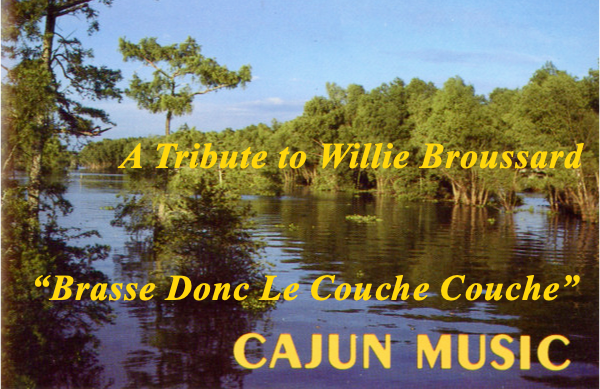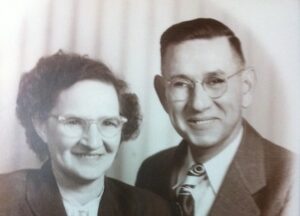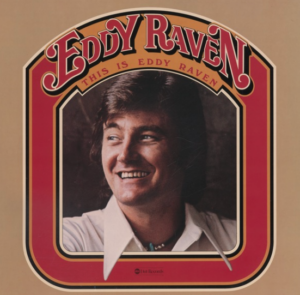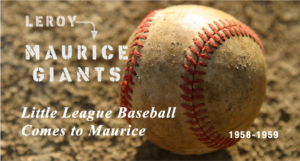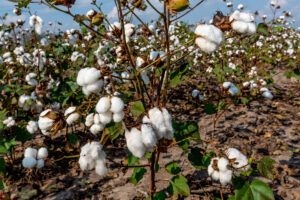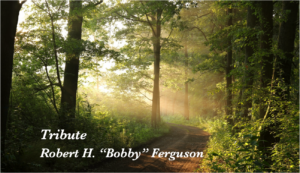A Tribute to Willie Broussard: The Legacy of “Brasse Donc Le Couche Couche”
In the tapestry of life, we are often fortunate to meet individuals who leave a lasting impression through their mentorship and warm nature. One such person is Mr. Willie Broussard, whose life was a beacon of wisdom and kindness. This tribute honors Willie’s multifaceted contributions to the Maurice, Louisiana community—as a devoted husband, father, revered math educator, town administrator, baseball coach, and songwriter behind the beloved Cajun classic “Brasse Donc Le Couche Couche.”
From a young age, Willie Broussard demonstrated a natural talent for public speaking, storytelling, and engaging with everyone he met. He was comfortable in front of any crowd, which became evident when he worked on the Hadacol Elixir caravans with Senator Dudley J. LeBlanc. Willie’s storytelling and songwriting talents made him a true advocate for Cajun heritage. This article explores his music legacy, focusing on his ability to enrich the lives of many through his creative works and deep-rooted passion for Cajun culture.
Willie Broussard’s Full Life and Legacy
Throughout his life, Willie Broussard achieved remarkable success in various fields, from education to entertainment. This story, however, will focus on one of his most iconic accomplishments: the writing and publishing of the Cajun song “Brasse Donc Le Couche Couche.” The song encapsulates Willie’s creative genius and reflects the cultural and social influences of the time. By examining the origins of this beloved tune, we celebrate Willie’s legacy and the lasting impact of his music on Cajun culture.
The theme of “Brasse Donc Le Couche Couche” reflects the migration of many Cajuns from South Louisiana to Southeast Texas in search of better job opportunities. Willie, along with many others, faced the challenge of deciding whether to move their growing families to this job-rich region.
The Cajun Migration to Southeast Texas
In the mid-20th century, the migration of Cajuns from South Louisiana to Southeast Texas was driven by economic opportunities, especially in the burgeoning industrial sectors of refineries, petrochemical plants, and shipyards in towns like Orange, Port Arthur, and Winnie. The discovery of oil at Spindletop in 1901 near Beaumont set the stage for rapid industrial development, attracting workers from neighboring states, including Louisiana.
During World War II, this migration intensified as the need for labor increased. Cajun workers brought their rich culture—including their cuisine, music, and language—with them, and their influence became an integral part of Southeast Texas culture.
By the end of the 20th century, an estimated 375,000 Cajuns had settled in Texas, with a significant concentration in the Golden Triangle area. This migration created a unique cultural landscape, blending Cajun traditions with local customs, particularly in towns like Orange, where the population became more than 30 percent French Cajun.
Willie Broussard: A Life Rooted in Cajun Heritage
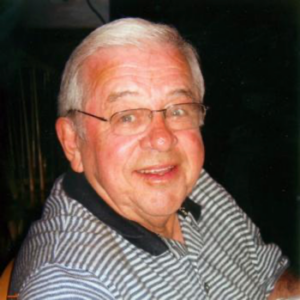
Born on July 2, 1931, Willie Andre Broussard was the son of Camille Broussard and Ada Hebert Broussard, the eighth of ten children. After graduating from Maurice High School, Willie attended the University of Southwestern Louisiana (now the University of Louisiana at Lafayette) and earned a degree in Mathematics and Education.
Willie spent over thirty years teaching industrial arts and mathematics in Vermilion Parish Schools. He also worked as the village administrator for Maurice and coached the local high school baseball team.
Proud of his Cajun heritage, Willie shared his love for the culture with everyone he met. In 1962, when the Abbeville American Legion Baseball Team qualified for the World Series in Farmington, New Mexico, Willie was asked to accompany the team as their spokesman, making the long bus trip more enjoyable by entertaining the players with songs and stories.
The Creation of “Brasse Donc Le Couche Couche”
Willie’s talent for songwriting stemmed from his ability to weave storytelling into music. His song “Brasse Donc Le Couche Couche” narrates the post-World War II era when many Cajuns left their homes to seek employment in East Texas. This move impacted the Broussard family, as two of Willie’s sisters relocated to Beaumont with their husbands.
The original recording of “Brasse Donc Le Couche Couche” was completed at La Louisianne Studios in Lafayette, with Willie as the songwriter and lead vocalist. He was backed by Leroy Broussard’s band, with Doc Guidry on the fiddle. While many mistakenly believed that Leroy composed the song, Willie’s creative mind was behind the iconic tune. Over time, the song was covered by numerous Cajun musicians, including Jim Olivier, The Magnolia Sisters, and Steve Riley and the Mamou Playboys.
The Meaning of Couche-Couche
For readers unfamiliar with couche-couche, it is a traditional dish from South Louisiana, typically served for breakfast or dinner. The dish is made from cornmeal, salt, baking soda, baking powder, and water, often cooked in a black iron skillet. Willie’s song became a symbol of this cherished Cajun meal, stirring nostalgia among older residents of Maurice. Click this link for a Couche Couche recipe. Recipe – Couche Couche 7.29.24
The song’s lyrics are well known in Maurice:
“Brasse donc le couche couche.
Tire bien la vache.
Chauffe le cafe.
J’sus partis a ce matin au Texas.”
A Hidden Third Verse
While most recordings of “Brasse Donc Le Couche Couche” feature two verses, a third verse was discovered by Lester Gauthier during Mrs. Rachel Villien’s 100th birthday party in 1997. Willie shared the lost lyrics, explaining that Doc Guidry’s fiddle had cut him off before the final verse was recorded. The third verse reads:
“J’sus parti ce matin a Beaumont,
Il y a un gros job qui m’espere sur moment.
Si fe fais bien, je vas rester,
Si je fais bien, je vas rester.
Mettre mes pieds sous la table.”
Willie Broussard’s Lasting Legacy
Though Willie Broussard is no longer with us, his legacy lives on through the timeless melody of “Brasse Donc Le Couche Couche.” This song remains a testament to Willie’s creative spirit and deep connection to Cajun culture. Each time Cajun musicians play the tune, Willie’s memory is honored, ensuring that his contributions to music and heritage continue to resonate with future generations.
We invite readers to share photos and stories that illustrate Willie’s life and legacy. Please send submissions to david@mauricetoday.com.
Listen to Willie Broussard sing is Cajun Hall of Fame recording for a bit of Maurice’s history by clicking the link below.
Song: Brasse Donc Le Couche Couche Recording
About the Authors
David Trahan and Lester Gauthier grew up in Maurice and often returned to visit family and friends. Lester is an attorney with his office in Lafayette, serving clients in various legal matters, while David is a scientist involved in researching and developing chemicals and processes for a local business. Both share a deep passion for exploring and preserving the rich history of the Maurice area, dedicating their efforts to uncovering and sharing the stories that define their beloved community.

